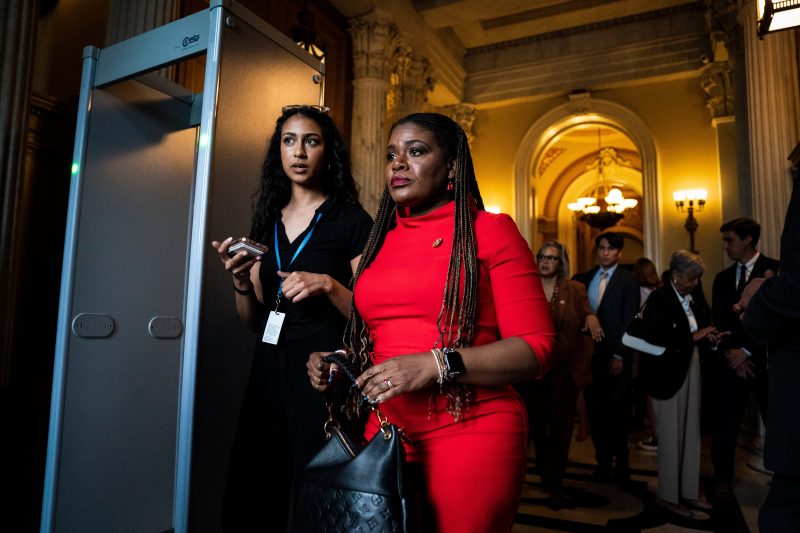In a move that highlights increasing tensions within the realm of U.S. politics, pro-Israel interests have been meticulously funneling millions of dollars into the effort to thwart the reelection of a proclaimed member of the progressive Squad” – Rep. Rashida Tlaib. This deliberate injection of funds underscores a broader campaign by allies of Israel to combat the growing influence of progressive lawmakers advocating for Palestinian rights within the U.S. political landscape.
One of the primary motivations driving this monetary push is the desire to undermine Tlaib, a Palestinian-American congresswoman whose unapologetic stance on Palestinian rights and criticisms of Israeli policies have propelled her into the spotlight. Her outspoken advocacy for Palestinian justice has positioned her as a prominent figure within the progressive movement, evoking both admiration and ire from various quarters.
The influence of pro-Israel interests in U.S. politics is not a newfound revelation. The pro-Israel lobby, including organizations such as AIPAC (American Israel Public Affairs Committee), has historically wielded significant power and financial resources to advance its agenda and ensure unwavering support for Israel within American foreign policy circles.
The targeting of Tlaib is part of a broader strategy to contain the rise of progressive voices critical of Israel’s treatment of Palestinians. By pouring substantial sums of money into efforts to defeat Tlaib and similar-minded lawmakers, pro-Israel groups seek to uphold the status quo of unquestioning support for Israel and curb the momentum of the progressive movement’s push for a more balanced approach to the Israeli-Palestinian conflict.
The influx of funds into Tlaib’s electoral race not only highlights the deep pockets of pro-Israel interests but also underscores the high stakes involved in challenging the prevailing narratives on U.S. foreign policy towards Israel. The battle between pro-Israel groups and progressive lawmakers like Tlaib represents a clash of ideologies and interests that will likely shape the future trajectory of American policy towards Israel and the broader Middle East region.
Moreover, the tactics employed by pro-Israel interests to undermine Tlaib’s reelection bid raise questions about the impact of money in politics and the extent to which foreign interests can shape domestic policy debates. The infusion of millions of dollars into a congressional race to influence the outcome reflects a troubling trend of moneyed interests seeking to exert undue influence on the political process and undermine the democratic principles of fair representation and accountability.
As the standoff between pro-Israel groups and progressive lawmakers intensifies, the battle for the soul of U.S. foreign policy towards Israel and the Middle East rages on. The outcome of this ideological tug-of-war will not only determine the fate of individual politicians like Tlaib but also have far-reaching implications for the broader dynamics of power and influence in U.S. politics. The clash between entrenched pro-Israel interests and the emerging progressive movement threatens to reshape the contours of American foreign policy and redefine the boundaries of acceptable discourse on Israel and Palestine.

